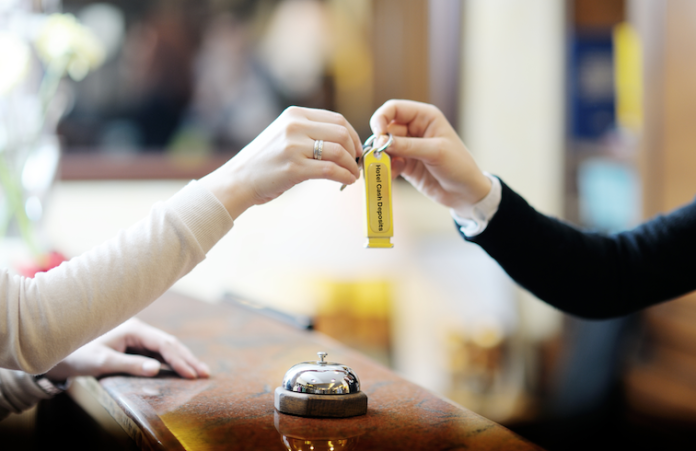
Hotel security and operations managers review security protocols daily to keep the entire population of guests, staff, vendors, and contractors on hotel premises safe and secure. With so much liability at stake, many hotel security teams are amending existing security plans with a “Zero Trust” policy to drive down risk for potential security breaches.
Zero trust security is a concept derived from IT network security protocol, which assumes that everyone and everything are threats until specific data is ascertained and validated. Typically, zero-trust security requires individuals to enter multiple levels of verification and authentication through passcodes, biometrics, and other credentials. Once all credentials are authenticated, access is granted to the network.
When applied to hotel environments, zero trust assumes that everyone on the premises is a security threat until authentication is successfully completed. Insider threats involving hotel employees and contractors can cause millions of dollars in liability and damage remediation costs. Zero trust aims to reduce the risk of insider threats and their financial consequences.
Hotel security can effectively administer zero-trust policies among hotel employees and temporary contractors that protect the ever-changing guest population on-site using key control systems. Additionally, key control limits guest access to restricted areas of the hotel to keep them safe and to prevent potential security breaches.
Electronic key control systems were invented thirty years ago and have since become an integral security technology component for hospitality properties and many other industries. Key control provides access control and asset management to prevent theft, vandalism, and security incidents at hotel properties. Key control cabinets are customizable to include key modules, access cards, and lockers to manage important assets such as cell phones, laptops, small weapons, hand-held radios, and more.
Key control systems provide actual-time accountability so hotel security departments and key control administrators will always know which keys are out, who has them, and when they are due to be returned. If they are late being returned, alerts will notify administrators automatically so they can take immediate action with the last users of those keys.
Here’s how key control reinforces zero-trust security protocols at hotel properties:
1User Credentials are Verified
Key control systems can be accessed only by hotel employees who have authorized and verified credentials. Every employee or contractor authorized to use the on-site key control system must enter pre-programmed authentication criteria every time to access the system and the keys or assets it contains. Keys are released only to these authorized hotel employees. Access to their keys is verified through PIN codes, biometrics, access cards, or a combination of these options.
2Restricted Access Control
Key control systems restrict access to keys according to pre–programmed criteria for each hotel employee. Hotels operate with multiple departments and multiple shifts. Key control systems can be programmed with specific criteria so employees can access only their keys and not any others based on time, department, job function, date, time, and more. For example, keys used by someone in housekeeping cannot be accessed by another housekeeping employee until their shift begins or accessed and used by someone in another department. At the end of work shifts, keys are scheduled to be returned so they are secured and available for an employee on the next shift when their credentials are entered into the key control system and verified.
3Multi-Factor Authentication
Hotels have areas and rooms that contain sensitive IT data, computer hardware, safes, cash drawers, and valuable supplies. Key control systems can be programmed to require multi-factor authentication of two or three authorized employees to gain access to keys for these restricted areas and assets. Electronic key control ensures that keys are released from and returned to the system once the required authorizations are entered and verified, creating another layer of zero-trust security for these highly restricted areas.
Key control systems can also generate audit reports that show all key activity and transactions. These reports can be scheduled to be automatically emailed at specific times or created on demand and printed at any time.
Electronic key control systems provide security protocols to manage all keys and assets on-site. They also provide access control so there is less likelihood of security breaches by hotel staff members or guests that result in liability issues. Key control is an essential security technology component that reinforces zero-trust security policies for any hotel property.
Sponsored by Morse Watchmans.











